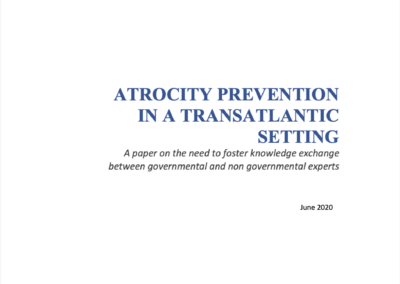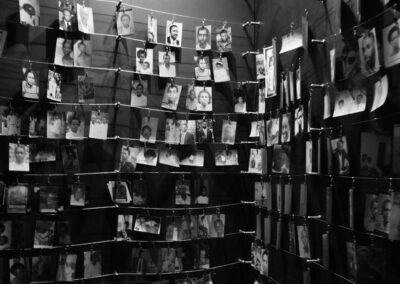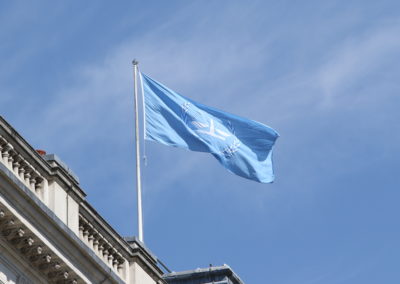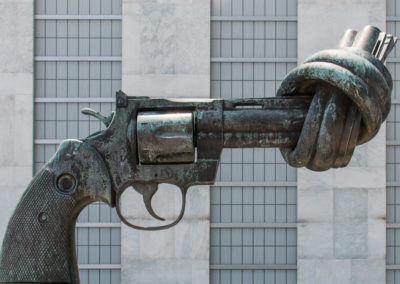Preventing mass atrocities is still an unmet, daunting challenge, despite lessons seemingly unlearned from the genocides of our time, including Rwanda, Srebrenica, Darfur and Myanmar. 25 years an unprecedented wave of standard-setting and norm development around the prevention and protection of civilians from atrocity crimes (defined as genocide, crimes against humanity, war crimes, and ethnic cleansing), these norms and agendas are backsliding, against a backdrop of a surging ‘illiberal internationalism’ and of institutional crisis. The continued failure to protect populations in Syria, Yemen, and anywhere else atrocities are taking place, is the most vivid, but not the only, example of this move back towards international indifference.
The objective of this project is to expand and sustain the atrocity prevention agenda by creating an action-oriented platform for engagement across governments, multilateral institutions, academia and practitioners. The platform will aim to channel high-level research to policymakers, while facilitating greater cross-sectoral cooperation and exchange on atrocity prevention and related protection agendas.
Following a series of strategic consultations and a mapping exercise conducted in early 2020, we have identified a high level of interest from both thought leaders and policymakers in such a platform. Specifically, our consultations indicated the often-siloed nature of actors in the atrocity prevention space, and expressed interest in the utility of a policy-oriented, research-backed platform, which would engage in multidisciplinary methods to tailor its work to the needs of policymakers with demonstrated interest and capacity in this area.
PROJECT AIMS
We are exploring a two-pronged approach consisting of an Atrocity Prevention Research Council and a grouping of policy constituents, which would exist in a symbiotic, iterative relationship, whereby structured briefings are delivered to policymakers in a short, digestible format, and through which policymakers can, in turn, inform the Research Council as to their needs and priorities. Our objectives are:
-
- To leverage the research capabilities and convening power of world-class research institutions, including ourselves at Oxford, to bring together thought leaders, expert practitioners, and policymakers with a successful history of mitigating atrocity crimes and promoting atrocity prevention policy and action;
- To further research and shape the field of atrocity prevention into its next chapter, by offering macro-level/geo-strategic analysis, alongside contextual studies; and by exploring synergies and tensions between atrocity prevention and related frameworks (including conflict prevention, fragility and stability, counter-terrorism) and new technologies;
- To foster inter-generational leadership, mentorship, and knowledge transfer around these questions; and thus
- To contribute to re-establishing the primacy of human life at the heart of international diplomatic action and discourse.
In addition, since it is well established that micro-multilateral networks are often successful in helping to create space to explore ideas and approaches to a greater extent than larger groupings, and because transatlantic consensus around prevention and protection can no longer be taken for granted, we are choosing to convene a dedicated Transatlantic Task Force to help support coordination and exchange with our regional partners.
An overview of our current thinking can be consulted here. If you wish to learn more about our work, do consult our briefing paper.
PROJECT TIMELINE
October 2019–Present









